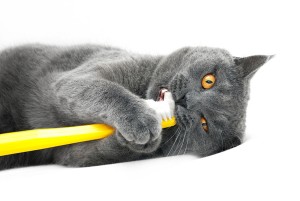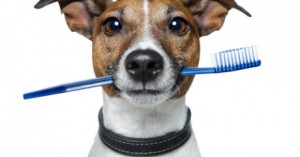Posts Tagged: Pets
Microchips and Your Pet

When you get a new pet you may hear the shelter, breeder, or your local veterinarian recommend getting your new furry family member microchipped. What exactly is a microchip and what does it do? It is a small electronic chip, enclosed in a case, and encoded with a registration number. This number can be used to help identify your pet in the event they become lost. This microchip number, is unique to your pet and can be read when scanned by a microchip scanner. It is about the size of a grain of rice and is implanted just below your pet’s skin, between the shoulder blades. Microchips are usually implanted by your veterinarian or pet care professional in less than 10 seconds using a special needle. Not to worry, the microchip injection is similar to the other vaccines your pet receives, so there is very little to no discomfort.
Preventative Oral Care for your Pet
Understanding the importance of dental care for our pets has come a long way in the last few decades. Although, dental care may not be something that first comes to mind when thinking of your pet’s health care, it should be something you consider. Just like us, plaque and tartar continually build up on our pet’s teeth. We would have a hard time going our whole life without brushing our teeth or having our teeth cleaned. The same can be said for our pets.
Here are some tips on how to help keep your pet’s teeth and mouth healthy
Brushing Teeth: Using an enzymatic pet toothpaste (with a finger-brush, gauze, toothbrush, washcloth) and brushing your pets teeth as often as possible (at least once a week) will do a world of good for preventing large problems later. It is important to note that you should stick to cleaning the outside of your pet’s teeth, not the inner/tongue area. The beauty of enzymatic toothpaste is that it’s all about the contact, not how hard you brush. If your dog or cat doesn’t like you having your finger near their mouth try spreading a little of the enzymatic toothpaste on a chew treat. Toothpaste often comes in many flavors (poultry, mint, malt, etc…) to help entice your pet to enjoy brushing. Just make sure that the toothpaste is enzymatic, and NEVER use human toothpaste on your pet.
Food, Dental Treats & Water Additives:
Halloween and Pets
Halloween is just around the corner, and we’ll be the first to admit that we love seeing the decorations and costumes. However, there are a few things to keep in mind when it comes to enjoying the holiday with our pets. Whether you’re going out trick or treating or giving out candy at home remember that Halloween can be stressful for our pets. Below are a few tips to remember.
Parties & Trick or Treating: The doorbell ringing, the door opening and closing, excited children, or parties with many strangers coming in and out of the house dressed in spooky costumes — all this excitement can be very stressful. Try keeping your pet indoors and in a comfortable area where they won’t be overwhelmed.
Candy & Decorations: Keep an eye on all candy and other Halloween treats. Chocolate, raisins, and many sugar free sweets can be toxic to your furry friend. Wrappers and sticks (from candy apples or lollipops) may get stuck and cause obstructions. Your best bet is to stick with treats geared toward your pet.
Most animals enjoy the smell of pumpkins, and pumpkin itself doesn’t pose much of a threat. However, a candle lit jack-o-lantern can be very tempting. Cats in particular may be drawn the flickering light of a candle.
Costumes: We all love a cute animal, but keep in mind your pet’s tolerance level. See if your pet is okay with wearing a decorative collar or bandana. If they’re okay with a full costume, try to keep it simple and make sure it fits properly. If it’s too tight, it may be uncomfortable. If too big, your pet may trip or get legs caught and then become stressed. Also, keep an eye out for human costume accessories. Dogs and cats may find something on your costume tempting to play with or to chew. As reported by the Pet Poison Helpline, cats may have an affinity for chewing on glow sticks. While not life threatening, the liquid can cause irritation, injury , pain, or severe hypersalivation.
Halloween can be fun for everyone, when we can keep in mind what is comfortable for all. Thanks for stopping by and Happy Halloween!!
- Happy Halloween!
- Halloween Bandana
- Rufferee Shirt Costume






